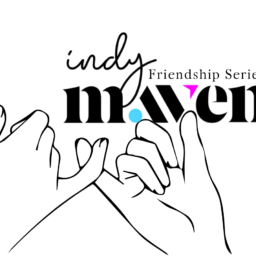
Now more than ever, it seems like women are being pulled in so many directions that we might actually break apart. Parents, spouses, bosses, kids (with the added pressure of e-learning!)—there’s a never-ending list of people to please on a daily basis. It may feel awkward, or even selfish, to say “no” sometimes, but uttering that two-letter word might actually be the kindest and most empowering thing you can do for yourself.
Whether you’re feeling overwhelmed at work, struggling to communicate with a loved one, or feeling pressured to volunteer for yet another project at your child’s school, you deserve to give yourself a break. We asked some local experts for their best advice on how to do just that.
 DANIELLE IRELAND
DANIELLE IRELAND
DANIELLEIRELAND.COM, @DANIELLEIRELAND_LCSW
—Get clear on what you feel and what you need.
—Trust yourself. You’re feeling the way you are for a reason.
—Remind yourself why you’re setting this boundary as often as you need. (This can be particularly helpful if/when someone starts to experience doubt.)
—Speak your truth aloud. Tell a friend, a partner, a family member, or someone you truly trust. This can also help reinforce your own conviction when the time comes to uphold your boundary.
—Consider what it will require of you to hold yourself accountable to the boundary you’ve set, if it’s crossed again. This is often when clients waver. They’ve done the work, gotten clarity, spoken their truth, and the other person does the same thing. While this can be deeply disappointing and/or painful, this is often where the real work with setting boundaries lies. A helpful question to ask ourselves is: “If this person continues to show up in a way that is hurtful or painful for me, what am I willing to do to show up for myself?”

MEGAN STROUP, COUNSELOR AT THE GREEN HOUSE
GREENHOUSEINDY.COM
—No is a complete sentence. No. Try it on for size!
—It is okay to take an inventory of your life and determine if you want to continue to spread yourself so thin. If the answer is no, be honest about that. If you struggle with worrying about disappointing others, remember that you get to disappoint someone else or continue to live a life doing things you don’t want to do. Anytime I get stuck on the disappointment issue, I keep in mind that I get one shot at this life and I don’t want to go through my days dreading to be where I am.
—It is okay to say no because there is something else you want to do more, but it is also okay to say no because you simply want to do nothing at all. Rest is good for us!
—If you wouldn’t want to do what is being asked of you tomorrow, do not say yes! This particular tool has saved me so many times from biting off more than I can chew.
—Assess if there are particular days, times, or events that you simply don’t want to miss. Set hard limits around those and be unapologetic about it. This may sound totally strange but I don’t like to help at church. See, I am a therapist. I work with clients six days per week. Sundays are my day to have my cup refilled. I have a nice lunch and I take a nap every Sunday. Many Sundays I choose to watch church through Facebook Live instead of getting all gussied up and going to the sanctuary. I think people struggle to understand my stance on this, but Jesus and I are good with it. Church attendance in the building just isn’t a box I feel I need to check off each week.
If you’re someone who struggles with setting boundaries, feel free to contact me. I have some openings currently in my private practice and would love to work with you even short-term, to help you reclaim your life. We only get one shot. Let me help you make it great!

HAZEL OWENS, MARRIAGE & FAMILY THERAPY RESIDENT AT CTS COUNSELING CENTER
CTS.EDU, @_HAZELOWENS
—Understand your capacity and need. It’s so important that in any relationship, at any moment, you understand what you need and what you have capacity for. It’s hard to set a healthy boundary when you don’t know where you end and the other person begins. Take some time to understand and learn yourself what it is you need in a relationship and what it is you have capacity for. Be honest with yourself first; then be honest with the other person.
—Communicate, communicate, communicate—actually use your words. Most of our communication is non-verbal; however, often times people walk around speaking non-verbally in relationships and often times it leaves room for misinterpretation. Communicate your boundary and your need with your words while holding a non-blaming stance. Focus on “I” statements. “I feel,” “I need,” “I would like for next time [this] could happen instead of…” People are not mind readers and neither are you, my friend. Try communicating as clear as you can about your needs and desires; that will help you show up as your best self in a relationship. Also, remember the Three T’s: Tone, Tact, and Timing when addressing these issues in relationships. Think of these questions: How’s my tone? Am I being tactful with my words? Is this the right time to have this conversation (for yourself and the other person)?
—Hold yourself responsible. It is important to hold yourself responsible to what is yours in a relationship. Be mindful of your own stuff that you bring into the relationship and be accountable for it. It is important to also take ownership of communicating (there’s that word again) with the person you are in a relationship with when your boundary has been violated (in a non-blaming way, of course). It is on you to be responsible for what you need.
—It’s okay if boundaries change. Boundaries can and do often change. People change, people grow, and life often brings us things that we have to adjust to. Allow space for the boundary to change and extend grace to yourself and the other person. When the boundary changes, you must be sure to communicate the new boundary

THERESA HOLLIDAY,
HOLLIDAYCOUNSELING.COM
—Identify where a boundary needs to be set. Start by identifying your goals, values, and important friendships and relationships outside your current romantic relationship. Examine if those aspects of your life are being nurtured and honored. If they are being ignored or dismissed, setting a boundary is likely necessary. You may also examine previous circumstances in friendships or relationships when you have felt uncomfortable, angry, uneasy, or resentful. Those feelings are likely the result of a lack of boundaries. The information gathered from this exercise will allow for guidance when developing a plan.
—Share your plan with your partner. I often recommend to my clients they share the plan with their partner, particularly if setting boundaries is a new skill. For example, “I’ve noticed I haven’t been sharing my needs with you, so I’m going to start practicing being more open with you about them,” or “I haven’t spent much time with my friends recently, so I will be creating some time in my schedule to ensure that happens.” Allowing your partner to be part of the process provides an opportunity for them to demonstrate support and help keep you accountable for identifying your needs.
—Practice and set realistic expectations. I liken learning a new skill in a relationship, such as setting boundaries, to learning a new language. If I asked my client to come to our next appointment able to speak fluently and conversationally in a language they have never spoken, he or she would most certainly deem this request impossible. However, I find many clients expect to be able to master a new skill in one or two sessions. Learning to consistently set healthy boundaries requires time, energy, and lots and lots of practice, just like learning a new language. No change happens overnight, and the process is, in fact, annoyingly slow.
—Take action. Be clear in your message and feel no need to offer a lengthy explanation. The statements: “No, I am not available that day, thank you for asking,” “I’d like to spend some time by myself today,” or “I need to stop having this conversation, we can talk again later,” are clear and direct. If your partner is unsupportive of you setting boundaries, or attempts to make you feel guilty or responsible for their feelings, it may be time to re-examine the health of your relationship.
Stephanie Groves is an Indy-based freelance writer and a regular contributor to Indy Maven.
















